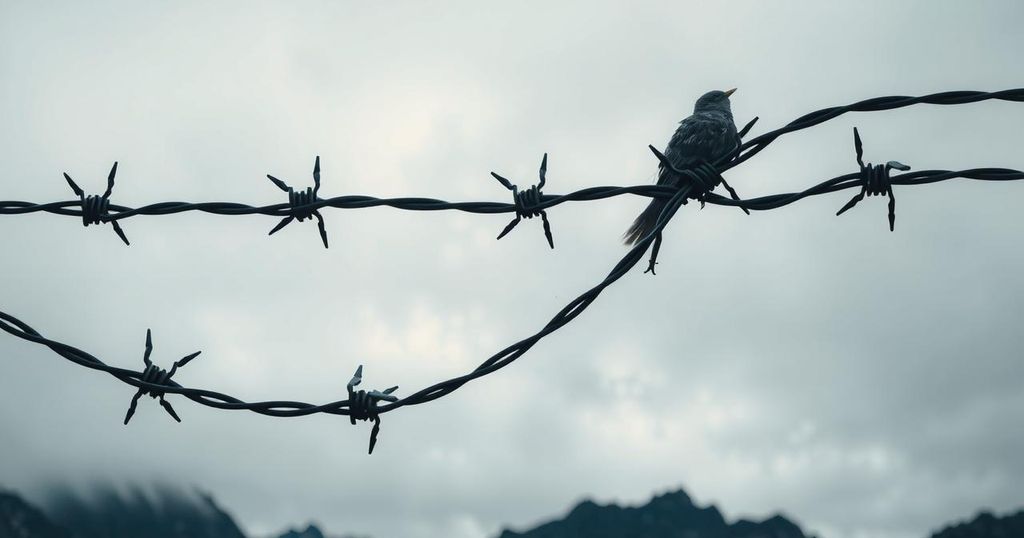The Escalating Conflict in the Democratic Republic of the Congo: Rwandan-Backed M23 Militants Seize Goma
The Rwandan-backed M23 militants have seized Goma, escalating conflict in the DRC. This incites condemnation from Western nations as they urge Rwanda to withdraw support for M23. The conflict is rooted in historical tensions post-Rwandan genocide, with M23 focusing on protecting Tutsi interests and exploiting mineral wealth. Thousands have fled the violence, and international relations are strained, particularly between Rwanda and the DRC.
The ongoing conflict in the Democratic Republic of the Congo (DRC) has escalated as Rwandan-backed M23 militants recently seized Goma, the mineral-rich capital of North Kivu. The offensive prompted widespread condemnation from Western nations, including the United Kingdom and France, urging Rwanda to halt its support for the rebel group, which Kigali denies. Since its emergence in 2022, M23 has claimed significant territory near the Rwandan border, raising concerns over regional stability and humanitarian implications as thousands flee the violence.
The roots of the current conflict stretch back decades, linked to the aftermath of the 1994 Rwandan genocide. Following the genocide, violence spilled into the DRC, leading to foreign interventions and the rise of numerous rebel factions. With an estimated six million casualties over the past thirty years and millions displaced, the DRC remains deeply troubled by ongoing conflict. M23 emerged notably after accusing the DRC government of failing to implement a peace deal from 2009.
M23, which stands for March 23, the date of a previous peace agreement, operates under the pretense of defending Tutsi interests against Hutu militias. Its recent military advances have revived historical tensions, allowing the group to control lucrative mining regions, particularly for coltan, a vital component in technology production. Reports suggest that the group generates substantial revenue which may incentivize its progress despite international efforts to curb its activities.
Violence around Goma has resulted in significant civilian displacement and rising fatalities among peacekeepers, straining relations between Rwanda and the DRC. Recent attacks, including bombings near refugee camps, have exacerbated the humanitarian crisis, prompting retaliation from DRC forces supported by international allies, including South African troops. As tensions rise and the military conflict escalates, the DRC has formally severed ties with Rwanda, citing aggression from Kigali.
The international response has included severe criticism directed at Rwanda for its alleged role in perpetuating violence through M23. James Kariuki, the UK deputy permanent representative to the UN, emphasized the necessity for an immediate cessation of M23 attacks on peacekeepers. Despite these calls for action, diplomatic ties and mutual interests complicate the West’s position, especially given Rwanda’s engagement in various international partnerships and foreign aid dependence.
The situation in the Democratic Republic of the Congo (DRC) is a complex tapestry of historical grievances, economic interests, and regional dynamics, profoundly affected by past events such as the 1994 Rwandan genocide. The emergence of rebel groups, including M23, is intricately linked to the ethnic tensions and power struggles that followed the genocide. Foreign interventions, particularly from Rwanda and its allies, contribute to the ongoing instability and humanitarian crises in eastern DRC, where mineral wealth has attracted both conflict and foreign interest. The implications of these conflicts extend beyond national borders, affecting regional security and international relations.
In summary, the conflict involving Rwandan-backed M23 militants highlights persistent instability in the DRC, driven by historical issues, economic interests in mineral wealth, and regional tensions. The capture of Goma represents a significant development with dire humanitarian consequences, prompting international condemnation and a reevaluation of diplomatic relations. As fighting continues and external pressures mount, the hope for a lasting resolution remains tenuous amid complex geopolitical factors.
Original Source: www.telegraph.co.uk




Post Comment